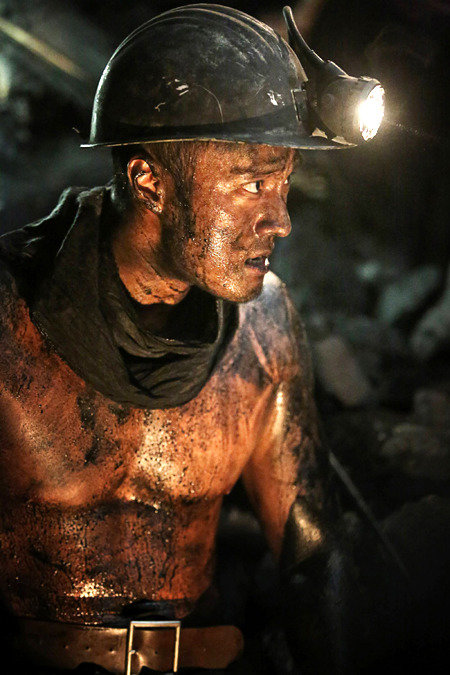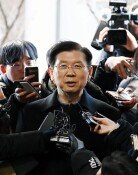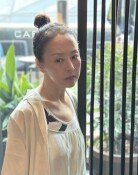Talks over the movie 'The Battleship Island'
Talks over the movie 'The Battleship Island'
Posted July. 31, 2017 07:38,
Updated July. 31, 2017 08:15

There is a controversial Gukppong issue surrounding "The Battleship Island." Gukppong is a slang that disparages exclusive and extreme nationalism and chauvinism. Even when Internet users enter Gukppong in web search engines, "The Battleship Island" automatically pops up as a related search word. Japanese Chief Cabinet Secretary of Japan and South Korea’s foreign ministry spokesperson exchanged harsh languages about the movie and each claimed that the movie is a creative work and it is based on a true story.
A debate on screen monopoly of major companies has continued. "The Battleship Island’ distributed by CJ Entertainment was played 10,808 times in 2,019 screens (or 55.8 percent share of the total screenings) on last Saturday alone. Film critic Jeong Ji-wook (50), audience Kwak Ji-yun (27, graduate student), and culture desk reporters Cho Jong-yup and Jang Sun-hee talked about many issues surrounding the movie on last Friday (this article contains spoilers).
Kwak Ji-yun (Kwak): The movie was not boring in general but was full of clichés. It was for the box office success.
Jeong Ji-wook (Jeong): It is a typical commercial film with stereotyped characters and relations of good and evil. It is the epitome of a mediocre movie, considering the director’s previous works. Romantic relationship between Choi Chil-sung (starred by So Ji-sub) and AVA (Lee Jung-hyun), father-daughter relationship between Lee Kang-ok (Hwang Jung-min) and Kim Su-an (Lee So-hee) can appeal to audiences in various age groups. Considering the popularity of Song Joong-ki (as Park Moo-young, a special agent of the Korean independence movement), the movie is destined to be succeed.
Cho Jong-yup (Cho): I found it interesting to see Hashima coal mining in the beginning of the movie, but that was all. Many online reviewers said that it was so predictable anti-Japanese movie. They argued that the movie borrowed the story of the battleship island only and neglected to express historical facts and hardships of forced labors. It’s all of massive escape scenes and shooting scenes. Korean audiences knew that already. They are sophisticated audiences.
Jeong: All my acquaintances liked the movie. Unfortunately, I could predict that how the characters would be changed as they were so plain. They were even changed and acted out of context.
Cho: Director Ryoo created a bad Korean character (Joseon Dynasty people) to exceed a typical dichotomy but that hindered the cruelty of forced labor under Japanese rule. It would be better to have good Japanese people rather than focusing on bad Koreans. I could find only one scene that a Japanese laborer looked on escaping Joseon people.
Jang: Audiences would not be satisfied to see the Rising Sun Flag was teared, if that was the case. We should keep in mind that "The Battleship Island" is a commercial film, not a documentary. Director Ryoo did well to make audiences feel catharsis and it is his strength. I guess that some bad reviews reflect that audiences expected too much from him.
Kwak: What do you think of the scene that Park Moo-young cut off the head of a Japanese with one stroke? I thought it was so typical. I couldn’t help but laugh and felt somewhat uncomfortable.
Cho: He looked like a Samurai in the Age of Civil War in Japan or a soldier of the Kwantung Army who killed innocent civilians, not an agent of the Korean independence movement. It was awkward as he resembled the enemy.
Cho: I liked it (all laughed)! The scene gave a cathartic experience to the audience.
Cho: In the movie, the Provisional Government of the Republic of Korea ordered to save Lee Kyung-young as Yoon Hak-chul as the only one who could end conflicts among factions of independent movement. However, it is nonsense to depict such important figure as a betrayer of Korean people. Director Ryoo’s movies somewhat stimulate animosity against elites but that was too much this time.
Jeong: The director said that this movie was based on historical facts but the rest was pure imagination. I think his comment explain enough.
Jang: Director Ryu clearly said that he used the history as a motif. It is certainly a problem that Japanese politicians and far-right media are calling the movie as a complete fraud and fake.
Jeong: It seems that focusing too much on attract the audience created loopholes.
Cho: Most Holocaust movies touch the hearts of the audience in general. We see Israel places barriers in Palestine today. Still, we got emotional to the ordeals of Israelis to see such movies. Then, do you think that we can expect for Japanese people, who truly reflect upon their past, to ask their acquaintances to go to see "The Battleship Island’?
Kwak: When I checked the movie screening schedule, all I could see was "The Battleship Island." The screening was scheduled on 10:45, 11:00, 11:20 in the morning.
Jeong: It is unacceptable that a movie accounts for over 2,000 screens. It is enough to have 800 to 1,000 screens for a long run screening film.
Jang: Expecting director Ryoo that he would make a movie that could persuade Japanese is too much. "The Battleship Island" is not a documentary film. It’s just a movie. That’s all. Also, most Korean audiences would not know about the Battleship Island. The movie made people to pay attention to the island at least. I want to award high marks to the movie on that point.
Jong-Yeob JO jjj@donga.com







